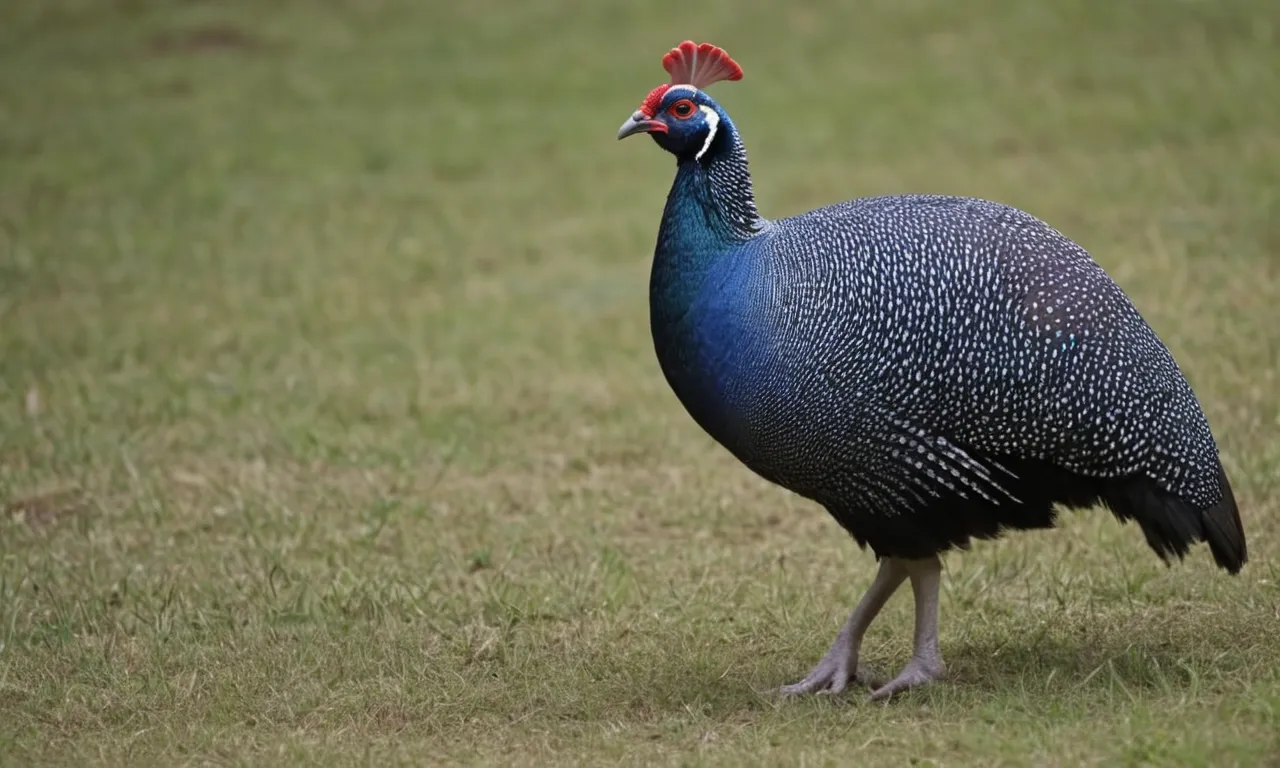Guinea Fowl Symbolism and Meaning

The guinea fowl, a unique bird known for its distinct appearance and loud calls, holds deep symbolic meaning in various cultures. This article aims to explore the symbolism behind this fascinating creature, discussing how it is perceived across different societies.
Appearance and Behavior
Guinea fowls are characterized by their elegant feathers, which come in a range of vibrant colors including blue, white, brown, black, and even iridescent green. They have long legs and short wings that enable them to fly short distances or run swiftly on the ground. These birds are known for their social behavior, often traveling in groups called “bands” or “flocks.”
Guinea fowls are also famous for their vocal abilities. Their call is a series of loud, shrill noises that can alert people to potential danger. This makes them valuable pets and guards on farms around the world.
Guinea Fowl in Africa
In many African cultures, guinea fowls symbolize vigilance and protection. Due to their strong sense of community and ability to sound an alarm, they are often associated with the concept of being “on guard.” This makes them a beloved animal in communities where personal and communal safety is highly valued.
In addition to its protective qualities, the guinea fowl also holds spiritual significance in some African traditions. Its feathers may be used in ceremonies or worn as amulets, believed to bring good luck and protection from harm.
Guinea Fowl in North America
In Native American cultures, particularly among the Cherokee people, guinea fowls are seen as messengers from the spirit world. They are sometimes called “sky chickens” due to their ability to fly short distances. The belief is that when a guinea fowl appears, it carries a message from the heavens.
Furthermore, because of its strong connection to the sky and ability to call out warnings, the guinea fowl is also viewed as a symbol of warning signs or omens. If one hears their distinct cry, it may be interpreted as a sign of impending change or an important message waiting to be delivered.
Guinea Fowl in European Folklore
In Europe, the guinea fowl’s unique appearance has led to several different beliefs and superstitions surrounding this bird. In some regions, it is believed that owning a guinea fowl can bring good luck and prosperity. Its unusual coloration might have also been associated with magic or witchcraft in certain areas.
Additionally, European folklore often connects the guinea fowl to storytelling, as its noisy nature was thought to be similar to the chatter of gossip or tales being told around a fire. As such, it can represent the sharing of knowledge and stories among people.
Symbolism in Art and Literature
The unique appearance and behavior of guinea fowls have not gone unnoticed by artists and writers throughout history. They have been depicted in various forms of art, from sculptures to tapestries, showcasing their vibrant colors and striking patterns.
In literature, guinea fowls often represent qualities such as vigilance, protection, or even spiritual guidance. These animals can also symbolize the importance of communal safety and sharing knowledge within a group.
Conclusion
The guinea fowl’s diverse appearance and behaviors make it a fascinating creature with rich symbolism across different cultures. Whether seen as messengers from the spirit world or symbols of protection and vigilance, these birds hold great significance in both practical and spiritual contexts. As such, they continue to captivate our imaginations and inspire art, literature, and folklore around the globe.





